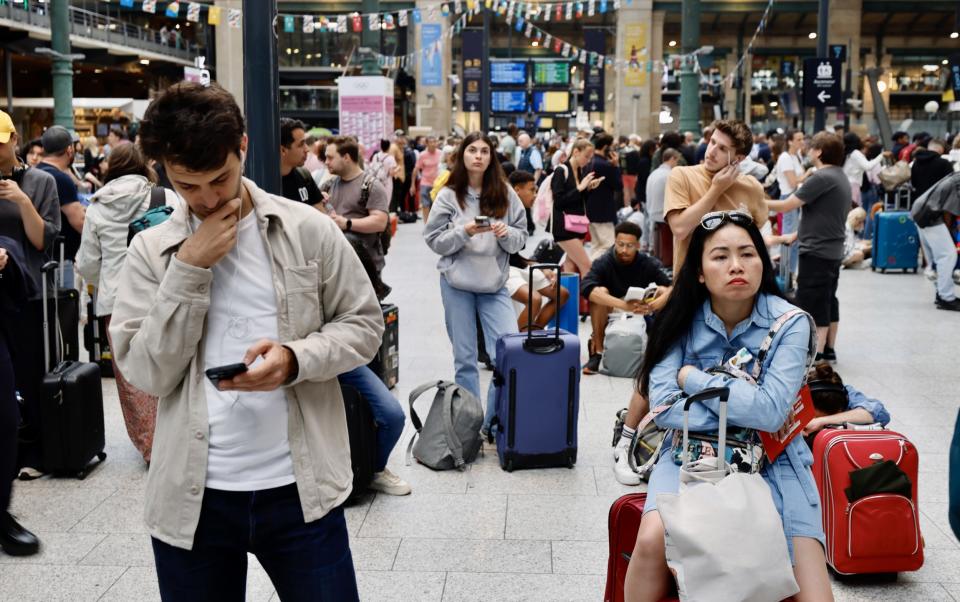The French authorities are analysing unexploded incendiary devices to track down the perpetrators of a co-ordinated series of arson attacks that paralysed the rail network before the Olympic Games opening ceremony on Friday.
Security forces have found several devices in the Yonne region, between Paris and Lyon, left behind by two men who were thwarted by rail workers.
Investigators are also inspecting four unexploded devices found on May 8, the day the Olympic flame arrived in Marseille, on the high-speed rail line connecting Aix-en-Provence and Marseille. So far, no link has been confirmed with Friday’s attack.

Anti-terror police are involved in the investigation, with tests being run on samples taken by police from three burnt and damaged signal boxes, in the hopes of uncovering fingerprints of the culprits behind the attack.
In the early hours of Friday there was massive and co-ordinated sabotage of the country’s high-speed rail tracks, knocking out most lines to and from northern, eastern and western France.
Saboteurs set fires in pipes that contained signalling cables, causing damage that will now require meticulous repair, one cable at a time, according to French state-owned rail operator SNCF.
The sabotage was “a premeditated, calculated, co-ordinated attack”, said Jean-Pierre Farandou, chief executive of SNCF.


Gabriel Attal, the prime minister of France, echoed those words, calling the attacks “prepared and co-ordinated”.
The attacks were launched during one of France’s busiest travel periods, on the opening day of the Paris Olympics. The travel disruption which ensued on Friday was expected to last throughout the weekend.
Three out of 10 high-speed trains in France were expected to be cancelled on Saturday on routes impacted by the attacks.


However, SNCF said that passengers who had not received any messages about changes or delays could expect to board and travel as planned.
One in four Eurostar trains were also cancelled for the weekend. Trains going to and from Paris were running on the “classic line”, instead of high-speed, extending trip durations by about 90 minutes.
Eurostar also asked travellers to consider postponing trips. Some 800,000 passengers were expected to have been affected by Sunday.


Source Agencies

